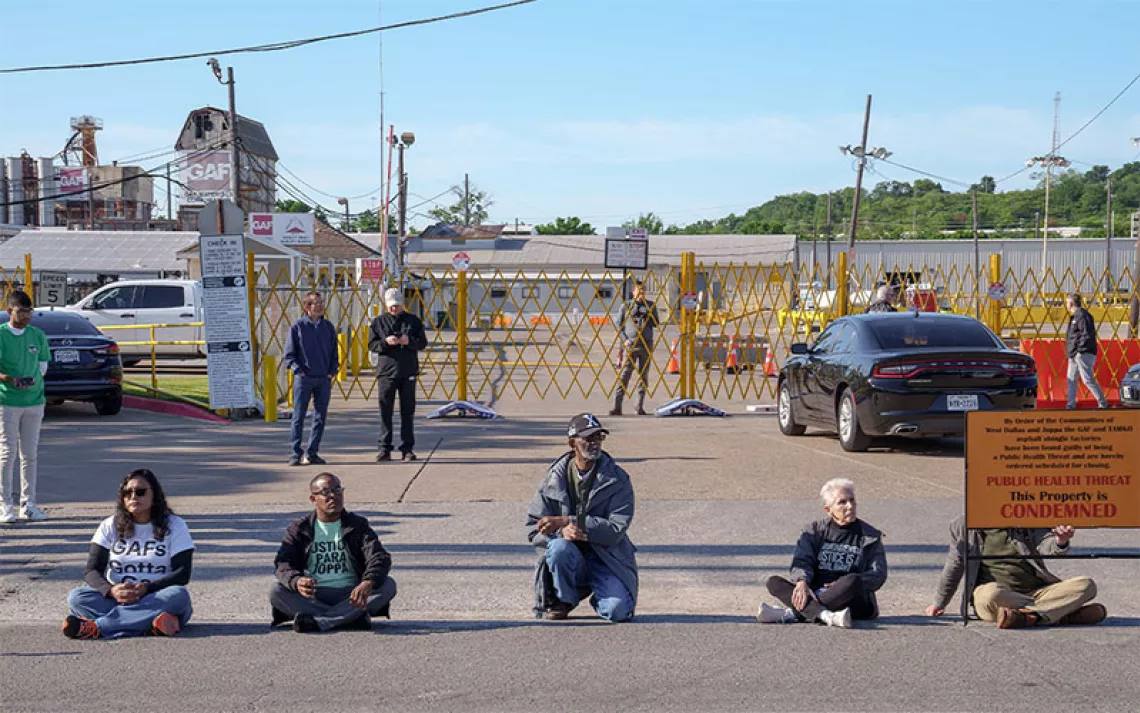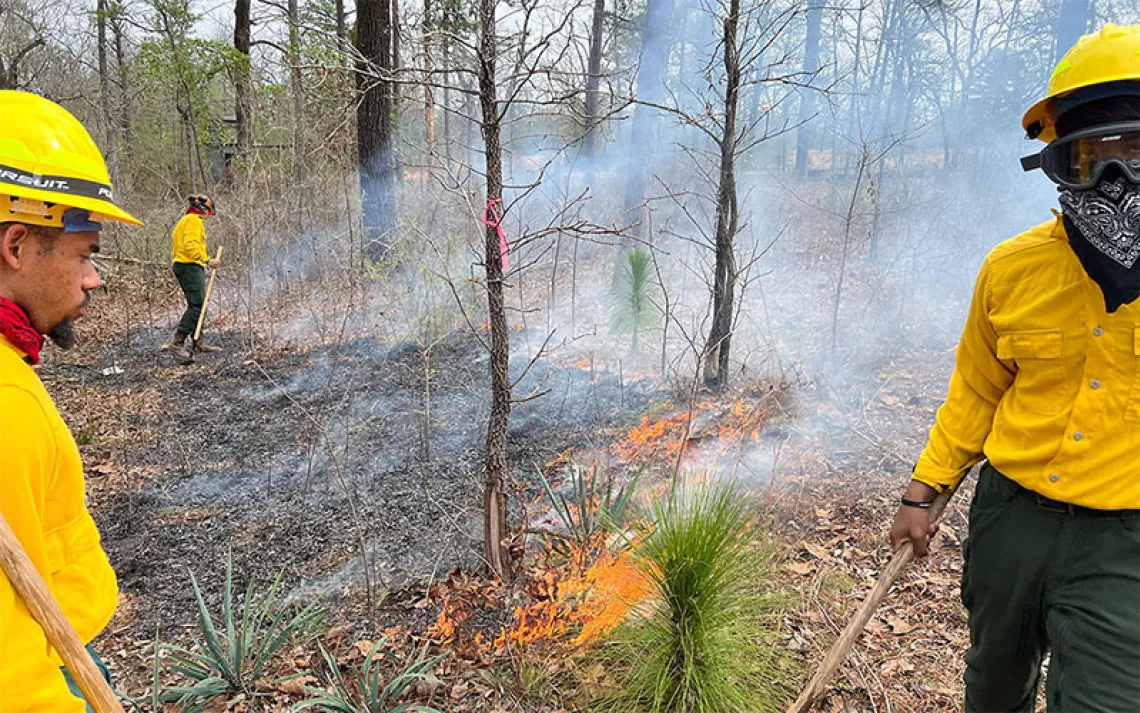Loud Noise Can Be Deadly, But We Can Quiet the Din
Solutions to noise pollution are out there

Photo by iStock/Pgiam
If you asked me six months ago to rank noise among the world’s forms of pollution, I would have placed it fairly low on the list. After all, air pollution? Water pollution? I was pretty confident those could kill me. Meanwhile, what was noise going to do—damage my hearing?
Many Americans have a similarly dismissive view of noise pollution, said Richard Neitzel, a scientist at the University of Michigan who studies the adverse health effects of various environmental exposures. Because of the common view that it “only” causes hearing loss, he said “it's easy to treat noise as a lesser pollutant.”
Although he’d argue that hearing loss should be taken more seriously, Neitzel pointed out that noise’s adverse effects can also extend far beyond your ears. Noise pollution “is actually something that could kill you,” he explained. Or, at the very least, “make you very, very sick.”
How can sound inflict so much damage? Sound waves can permanently destroy your ear’s sensory cells if they are too loud or too long-lasting. “The higher above 70 [decibels] you go and the longer you're exposed, the higher the hearing-loss risk,” said Neitzel. (Seventy decibels is roughly equivalent to hearing a vacuum cleaner from 10 feet away.)
But the way you feel about sound matters too. If your brain deems it annoying, disturbing, or distracting, it can drive up your heart rate and pulse, explained environmental psychologist Arline Bronzaft, a professor emerita of the City University of New York. In other words, you feel stressed. Over time, that can lead to high blood pressure, heart attacks, and other cardiovascular disorders. In 2013, researchers estimated that over 145 million Americans were potentially at risk of hypertension due to chronic noise exposure. The European Environmental Agency found that in western Europe, noise contributes to 48,000 new cases of ischemic heart disease every year as well as 12,000 premature deaths.
*
Until last January, I was blissfully ignorant of this. Despite spending years thinking about environmental issues, noise pollution had rarely crossed my mind. Then, one day, I found myself in a street-facing apartment, with my bedroom-slash-office window situated 50 feet from a construction site.
“How bad could it be?” I remember thinking at the time. “Beats squeezing two adults and a cat into a tiny hotel room for an unspecified number of months.”
Looking back, I was being naïve. Though the ongoing construction noise isn’t loud enough to damage my hearing with my windows closed, it’s unrelenting. It grinds on my nervous system for huge chunks of my day. The shrill of a truck’s back-up beeper, the repetitive drumming of hammers, and the earth-shaking roar of heavy equipment all feature in the soundtrack of my workweek. Not even noise-canceling headphones can completely block out the noise.
And a whole other set of noises plagues me after-hours now too—the nightly sounds of life on a busy street near downtown LA. During this time, I hear a cacophony of police sirens, motorcycles, garbage trucks, and car horns, as well as the shrieks of a nearby car alarm that constantly cries wolf.
Although these sounds are more transient than the construction racket, I’d argue they’re more annoying. They’re the ones that literally keep me up at night. That’s not only frustrating but also frightening, since noise-related sleep disturbances can, among other things, harm mental health. “Loss of sleep is a serious impact” of noise, emphasized Bronzaft. “It diminishes quality of life.”
*
There’s not much I can do about all this until my lease is up. When that happens, I plan to relocate to a quieter neighborhood. But my mobility is privilege in action. Like other forms of pollution, noise has been shown to disproportionately target disenfranchised groups, who are more likely to live near noisy places, such as airports and roadways, Neitzel told me.
“In an ideal world, we would have some regulations,” he added. Unfortunately, right now, “if you want quiet, you have to seek it out as an individual.” He noted that as we’ve learned repeatedly during the COVID-19 pandemic, placing the burden on individuals is “the worst possible way to do public health.”
It didn’t have to be this way. At one point, the US government made a serious effort to quiet the country’s clamor. In 1972, shortly after the EPA discovered that 40 million people were at risk for noise-induced hearing loss, Congress passed the Noise Control Act, tasking the EPA to enforce it through the Office of Noise Abatement and Control (ONAC).
According to Neitzel, ONAC “was established with the sole purpose of understanding how loud America was.” Once that was done, its mission was to fix it. ONAC successfully conducted groundbreaking noise pollution research and educated the public. It set noise limits on things including air compressors, motorcycles, and garbage trucks.
Unfortunately, as it often happens in the US, a change in administration stripped ONAC of its funding. “At the time, the EPA was under fire for trying to regulate lawn mower noise levels,” explained Neitzel, “and this office was held up as an example of governmental overreach.” In 1981, Charles Elkin, who headed the office at the time, got a phone call from President Ronald Reagan’s White House Office of Management and Budget. He learned ONAC’s budget had disappeared and that “the matter was nonnegotiable.”
Although the office still exists today, it lacks the funding to carry out its legislatively mandated duties. It’s become a zombie agency. Meanwhile, the Noise Control Act preempts the states from filling in this gaping regulatory hole.
Some cities have tried to quell the chaos by creating their own noise ordinances. While Los Angeles can’t legally force construction companies to lower their noise levels, they can limit the hours in which they work. Here, construction can only be performed from 7 A.M. to 9 P.M. during the workweek. Hours are even shorter on holidays and weekends. But while it’s a start, it still doesn’t target the root of the problem: Regardless of what time construction occurs, it never ceases to be loud.
Experts argue that there are solutions to the noise problem. Advocates tout the effectiveness of everything from improved city planning to the use of quieter technologies. “We need champions in this area,” said Neitzel. “Legislators, policymakers, advocates—folks who can help bring this to the awareness of the public.”
“What I learned is that the solutions are there,” Bronzaft said, adding that she’s proposed many over the course of her career. “That’s the painful part,” she pointed out. “We know what to do. We just lack the will to do it.”
 The Magazine of The Sierra Club
The Magazine of The Sierra Club



